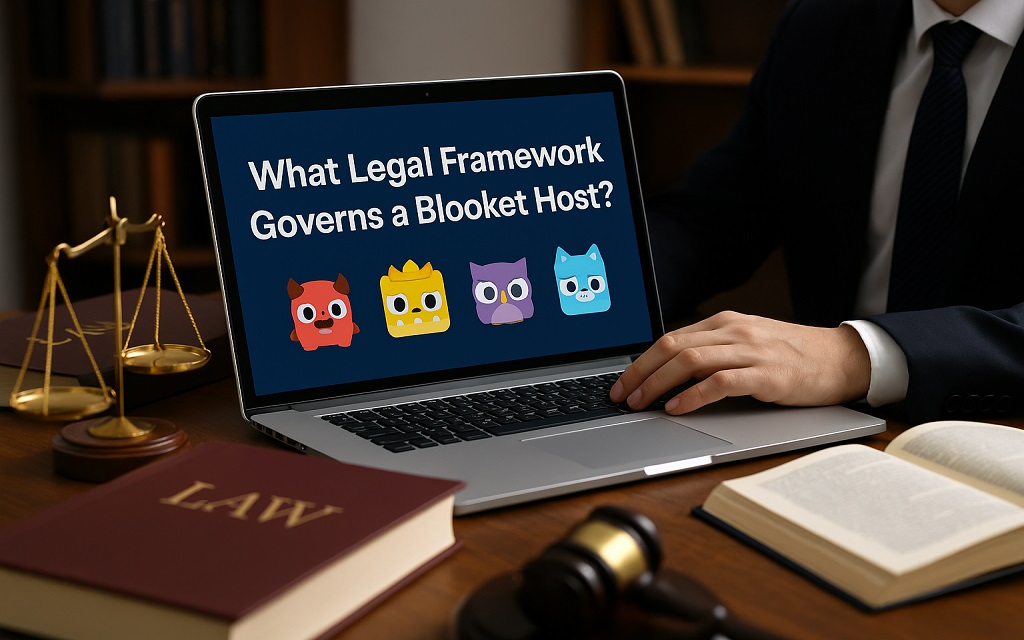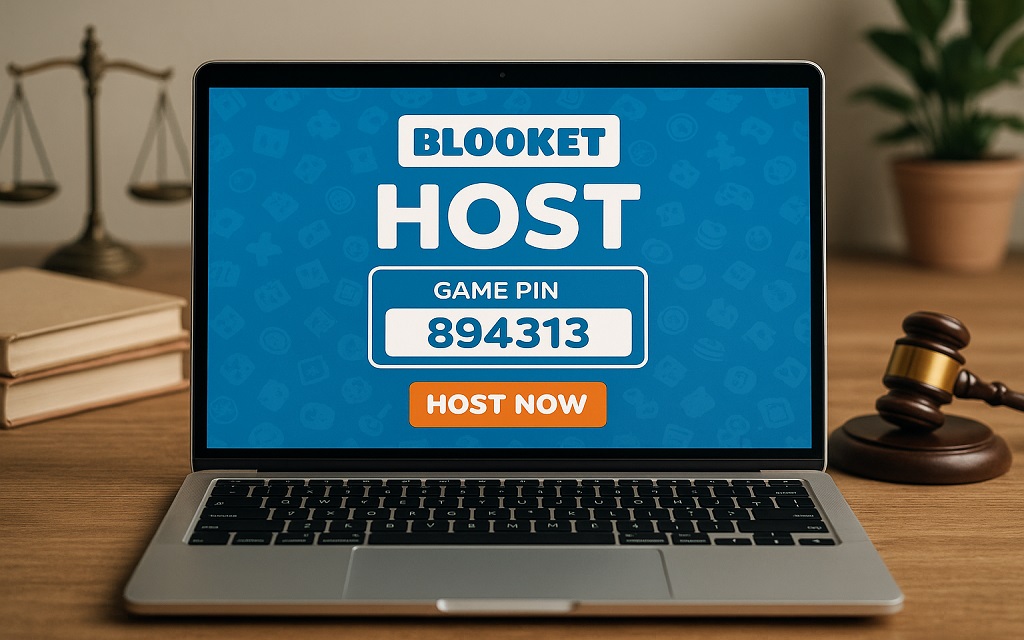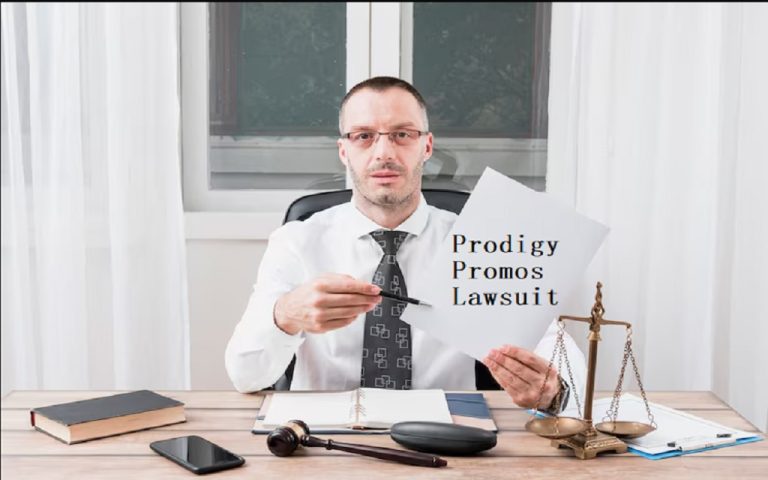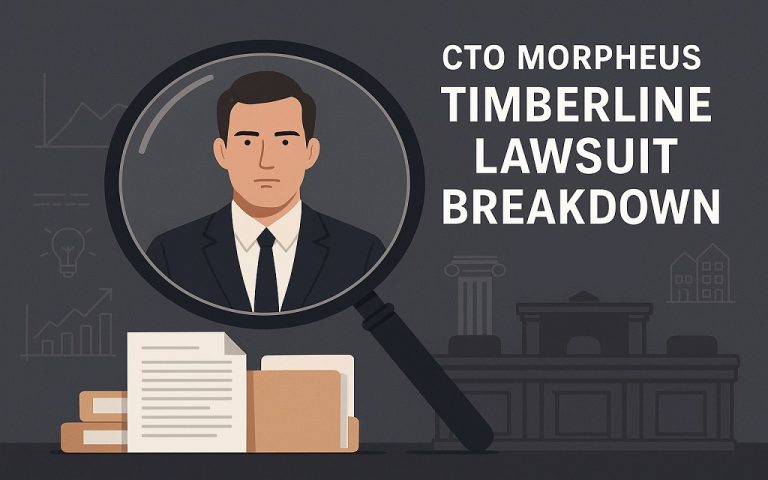You play a key role as a Blooket host in every digital classroom. The platform helps you create fun quizzes and live sessions, but each activity carries legal duties. You handle student data and control how it moves through the system. That control makes you responsible under privacy and data laws.
It is important to note that a Blooket host must comply with strict rules. National and international laws, such as COPPA, FERPA, and the GDPR, safeguard student information. You must read the platform’s terms of service and privacy policy before beginning any session.
Each Blooket host serves as both a data custodian and an instructor. You protect students by understanding your legal limits and applying strong privacy measures. Awareness ensures lawful teaching and builds trust between schools, parents, and students.
What Does It Mean to Be a Blooket Host?
You act as a Blooket host when you create or supervise a game session. The role involves control over content, participants, and settings. You generate a game code and invite students to join. Each player connects through your hosted environment. You direct how the session operates and what information is collected from users.
It is essential to know that hosting is not only a technical role. It also has legal weight. When you manage a Blooket session, you collect and control data. You become responsible for the safety of that data under the education privacy law. The Family Educational Rights and Privacy Act (FERPA, 20 U.S.C. § 1232g) requires educators and schools to maintain student records. Any activity involving the storage or transmission of student data by third parties must comply with FERPA.
Blooket’s Terms of Service identify each account holder as responsible for all actions under their login. The agreement defines the governing law as Delaware jurisdiction. It also includes a binding arbitration clause. You accept these conditions when you host a game. Before utilizing the platform, all educators should read and comprehend these terms.
According to a 2023 U.S. Department of Education report, over 65% of schools already use third-party classroom management apps. Many of those tools process personal student data. You should treat Blooket hosting as a formal data activity subject to regulation. Being informed of the law shields you against future conflicts or infractions.
What Legal Framework Governs a Blooket Host?

You operate under clear legal rules when you host a Blooket game. The foundation is based on the platform’s Terms of Service and Privacy Policy. You create a binding contract once you register or start a session. Your responsibilities, dangers, and legal boundaries are outlined in that agreement.
It is essential to realize that Delaware law governs any issues arising under such a contract. A class-action waiver and a need to arbitrate in Delaware are among the requirements. Your approval of those terms is shown by clicking “agree.” You should carefully study the conditions before hosting, even if many users disregard them.
Every Blooket host must also follow education privacy laws. The way that internet services gather information from children under the age of thirteen is governed by the Children’s Internet Privacy Protection Act (COPPA, 15 U.S.C. §§ 6501–6506). Blooket holds schools and teachers accountable for consent. You must verify that the institution or the student’s parents have given their consent for the student to participate.
The Family Educational Rights and Privacy Act (FERPA, 20 U.S.C. § 1232g) forbids disclosing individually identifiable student information without authorization. Student names, results, and login records count as protected information. These guidelines are enforced by the US Department of Education, which also has the authority to penalize infractions.
When students from the European Union enroll, they are subject to the General Data Protection Regulation (GDPR). It identifies you as a data controller who must justify each data activity. Additionally, users must be able to see or remove their data.
A 2024 UNESCO study found that 54% of schools using EdTech failed to verify vendor contracts legally. You should be able to reduce that gap with regular policy inspections and legal audits. Proper review protects your institution and keeps every session compliant.
Which Privacy Laws Are Relevant When Hosting Students on Blooket?
You must follow strict privacy laws when hosting students on Blooket. The platform gathers usernames, scores, and participation information. Under privacy legislation, the data is considered student records, and you are legally obligated to safeguard it.
It is crucial to understand that all student education records are protected by FERPA (20 U.S.C. § 1232g). It is illegal to share personal information without written authorization. You should always confirm consent before hosting a class game.
The Children’s Online Privacy Protection Act (COPPA, 15 U.S.C. §§ 6501–6506) also applies to users under 13. Blooket places compliance duties on educators. You have to make sure that every child’s involvement is approved by their parents or schools.
Students in the European Union are subject to the General Data Protection Regulation (GDPR). It defines student data as personal information. Participants must be informed about the information you gather, how long it is retained, and how to request its deletion.
According to a 2024 Data Quality Campaign poll, 68% of educators did not know that classroom applications had data retention policies. By keeping track of what Blooket collects and for how long it stores it, you can avoid that error. Accurate records protect you during audits or complaints.
Strong privacy compliance reduces risk and builds trust. You meet your legal duty when you protect student data, limit access, and secure valid consent.
Is a Blooket Host Responsible for Student Misuse?
You can face liability when students misuse Blooket during your session. The law establishes liability via monitoring and control. Explicit rules and constant oversight must prevent misconduct.
It is essential to understand that carelessness occurs when an educator does not take appropriate safeguards. Neglecting harmful behavior might lead to legal or disciplinary action. You remain accountable for what happens under your hosted session.
The Blooket Terms of Service place full responsibility on the account holder. You have to control participant behavior, material, and usernames. Inappropriate behavior may result in penalties or account suspension. As soon as a violation is discovered, it should be stopped.
According to a 2023 Education Law Review research, unsupervised environments accounted for 37% of events in digital classrooms. Enforcing rules before each session and maintaining activity records for accountability are two ways to reduce risk.
You can protect yourself through clear actions.
- Set behavior rules before starting sessions.
- Monitor games in real time.
- End sessions with rule violations
- Keep records of attendance and reports.
International users face extra obligations under the GDPR. Any data breach must be reported within 72 hours under Article 33. Timely reporting reduces fines and shows compliance.
Liability prevention begins with supervision and documentation. A careful Blooket host protects students, the school, and their personal reputations by applying strong controls at every stage.
What Intellectual Property Issues Can Arise for a Blooket Host?

You should treat all content used on Blooket as intellectual property. Copyright may apply to any question, picture, or material you post. Infringement may result from using unauthorized content.
It is crucial to understand that authors’ original works are protected by the Copyright Act of 1976 (17 U.S.C. § 101 et seq.). Even while you still own your job, you permit Blooket to use it when you post it. Don’t include anything you don’t own or are unable to distribute lawfully.
When someone duplicates another person’s work without that person’s permission, copyright infringement may occur. 41% of instructors recycled online content without checking its rights, according to a 2024 Digital Education Report. By forming positive habits, you can avoid problems.
- Create your own question sets.
- Use public or open-license materials.
- Credit the source when you adapt existing work
- Keep proof of where you obtained each item
You must also avoid trademark misuse. Using brand names in games may imply endorsement. Trademarks may only be mentioned in descriptive or instructive situations.
International laws, such as the Berne Convention, protect the rights of global artists. Hosting a game with foreign content can trigger those laws. You should review your materials before each session to ensure compliance.
A responsible Blooket host respects ownership and law. Legal awareness keeps your classroom creative and compliant.
How Should Schools Legally Manage Blooket Hosting?
You must manage Blooket hosting in accordance with the school’s official policies. Institutions hold final responsibility for compliance, consent, and oversight. Every session involving students should follow approved procedures.
It is essential to recognize that, under FERPA (20 U.S.C. § 1232g), schools are the custodians of student data. Administrators must verify that each tool conforms with privacy and security laws. Blooket is considered a third-party seller. The school should review its Terms of Service and Privacy Policy before allowing teachers to use it.
A written vendor agreement offers protection. It should define data ownership, access rights, and deletion rules. The U.S. Department of Education’s PTAC advises schools to keep such contracts for all digital services.
Training also matters. A 2024 National Education Policy Study found that 59 percent of schools lacked formal training for EdTech compliance. You can close that gap through clear guidance and annual audits.
You can strengthen compliance through simple actions.
- Approve all classroom tools in writing
- Collect parental consent for minors
- Audit staff accounts regularly
- Appoint a data-protection coordinator
International schools must also meet GDPR standards. That law classifies schools as data controllers and requires written data-processing agreements with vendors.
Proper management ensures that every Blooket host operates under lawful supervision. Policy, training, and contracts create a safe and compliant learning environment.
What Jurisdiction and International Issues Affect Blooket Hosting?
You operate under Delaware jurisdiction when you use Blooket. The Terms of Service confirm that Delaware law governs all disputes. You accept that rule once you create an account. Any claim must be arbitrated in Delaware. That rule applies to users in every region.
It is essential to know that the clause limits your right to sue in local courts. You also waive the right to join a class action. You should review those conditions before hosting. Legal counsel can explain how they affect your school or personal liability.
International sessions add more legal layers. The General Data Protection Regulation (GDPR) restricts data transfers from the European Union to foreign countries. You need to make sure Blooket provides protections for authorized transfers in line with Articles 44 to 49. Standard Contractual Clauses (SCCs) are a common component of those protections.
Other nations follow similar laws. The Privacy Act 1988 is applied in Australia, while PIPEDA is enforced in Canada. Some Asian countries require local data storage. You should confirm that your institution complies with the requirements when hosting students from abroad.
A 2025 Global EdTech Compliance Survey reported that 32 percent of schools ran cross-border sessions without checking legal requirements. You can avoid that mistake through simple actions.
- Review all contract clauses on jurisdiction.
- Seek legal advice before arbitration or waiver agreements
- Keep records of international sessions and consent forms
- Verify GDPR and vendor compliance documents
- Report any breach within seventy-two hours under Article 33
International compliance protects your students and your institution. You stay safe when you follow jurisdiction rules and manage data responsibly.
What Are the Best Legal Practices for Safe Blooket Hosting?

You can protect yourself through consistent legal practices. Every host should approach a Blooket session as a regulated activity under data protection law. Legal care prevents disputes, violations, and unnecessary risk.
It’s important to realize that compliance starts before you play any games. Make sure that every member has read the Terms of Service, understands the privacy settings, and meets the age and access authorization requirements. You serve as a gatekeeper between the legal system and technology. Your diligence ensures lawful classroom use. You can strengthen your protection through a clear routine.
- Review all terms and policies quarterly
- Secure parental or institutional consent for minors
- Limit student data to essential identifiers only
- Use secure classroom networks for online access
- Monitor every live session for misconduct
- Keep consent forms and participation records
- Remove old accounts or data promptly after use
Those steps create a strong compliance framework. You demonstrate active responsibility, which supports a defense against negligence or privacy claims. Courts often evaluate documentation as proof of preventive action.
Educators should also coordinate with data officers or legal counsel. Institutional review provides a second layer of assurance. The U.S. Department of Education’s 2023 Technology in Schools Report confirmed that schools with written EdTech policies reduced privacy incidents by forty-two percent. That data shows how structure limits exposure.
International hosts must adopt similar routines. The GDPR requires detailed documentation of consent and lawful data processing. You must store those records and provide them during audits. You also must report any breach within seventy-two hours. Following those timelines reduces penalties under Article 33.
You protect both your students and your professional standing by applying strong legal practices. A safe Blooket session reflects preparation, awareness, and respect for the law.
When Should a Blooket Host Seek Legal Advice?
You should seek legal advice when your role as a Blooket host extends beyond simple classroom use. One may be liable under contract, intellectual property, and privacy laws for certain activities. By consulting a specialist, you can prevent expensive errors and legal action.
It is essential to know that legal consultation becomes necessary once data processing moves outside ordinary instruction. You should contact counsel when you host large-scale events, collect sensitive student information, or use Blooket for research. Consent forms, retention periods, and transfer procedures can all be examined by legal teams. That study confirms compliance with FERPA, COPPA, and GDPR.
Before signing any formal contracts, you should also speak with Blooket or a third-party provider. Some schools negotiate specific agreements that modify jurisdiction or liability clauses. Legal professionals can examine the documents and identify potential risks. The 2024 Education Law Compliance Index shows that 43% of schools carried out technology contracts without a legal evaluation. That trend exposes institutions to avoidable disputes.
Legal consultation also helps when a breach or complaint occurs. If student data is leaked or a parent files a privacy claim, you must respond within the timelines set by law. The GDPR allows only seventy-two hours for notification. FERPA requires written notice before any disclosure. Attorneys can coordinate responses and reduce exposure.
You can identify key triggers that require immediate legal attention.
- Receipt of a data breach notice or complaint
- Discovery of unauthorized student data sharing
- Plans to host international or commercial sessions
- Institutional contracts with vendors handling student data
- Requests for deletion or correction under privacy law
Every Blooket host should maintain contact with institutional counsel or a privacy officer. Legal advice converts uncertainty into structured compliance. You protect your students and your career when you consult professionals at the first sign of legal risk.
Conclusion: How Should You Balance Education and Legal Compliance?
You must balance innovation and compliance when hosting a Blooket game. The platform enhances learning, but the legal duty stays with you. Each session involves privacy, intellectual property, and jurisdictional rules. Awareness turns technology into a lawful teaching tool.
It is essential to know that every host acts as a data controller. You select what kind of data to collect and how to safeguard it. Apparent limitations are established by privacy legislation such as the GDPR, COPPA, and FERPA. Respect for these laws defines professionalism and integrity.
You can stay protected through preparation.
- Read all Blooket terms carefully.
- Secure consent for minors
- Supervise games and prevent misuse
- Keep clear records for each session
71% of instructors accessed internet resources without a legal check, according to a 2025 Global EdTech Compliance Report. By developing compliance and accountability behaviors, you can enhance that record.
Compliance with the law fosters confidence among kids, parents, and schools. You protect your career and your institution by respecting data rights and adhering to safety rules. Responsible hosting creates a secure and lawful digital classroom.
Disclaimer: This article provides a general overview of the Blooket Host, based on publicly available information, and is intended solely for informational purposes. It is not legal advice.
Musarat Bano is a content writer for JudicialOcean.com who covers lawsuits, legal news, and general legal topics. Her work focuses on research-based, informational content developed from publicly available sources and is intended to support public awareness. She does not provide legal advice or professional legal services.




